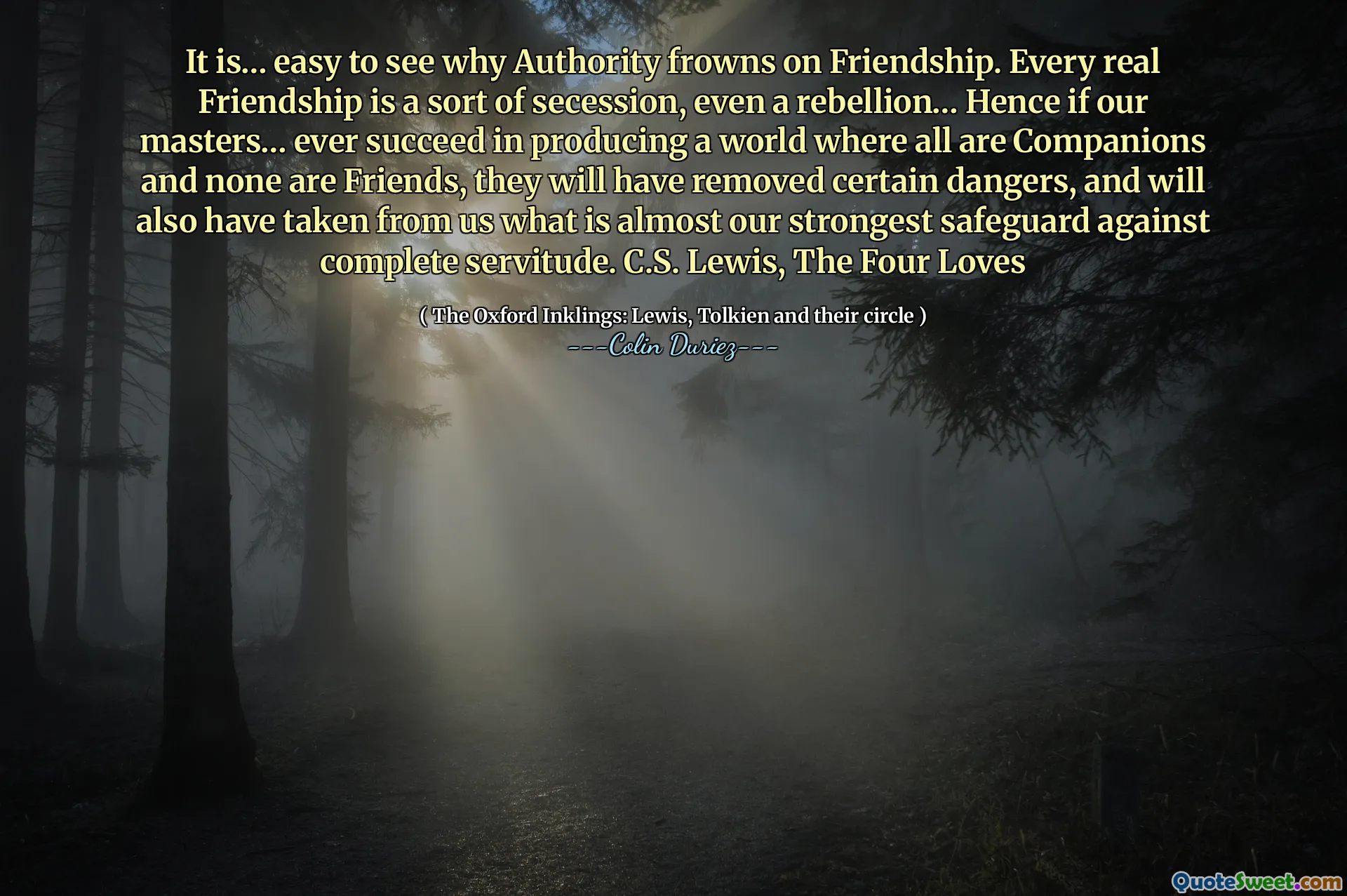
It is… easy to see why Authority frowns on Friendship. Every real Friendship is a sort of secession, even a rebellion… Hence if our masters… ever succeed in producing a world where all are Companions and none are Friends, they will have removed certain dangers, and will also have taken from us what is almost our strongest safeguard against complete servitude. C.S. Lewis, The Four Loves
C.S. Lewis reflects on the nature of friendship in his work, suggesting that true friendships can be seen as a form of rebellion against authority. He argues that genuine friendships create a bond that can challenge the control imposed by those in power. Lewis believes that authority tends to view friendship unfavorably because it can pose a threat to their influence over individuals, as friends often support and protect one another outside the reach of hierarchical structures.
In a society where companionship replaces friendship, the risks associated with tyranny may diminish, but this comes at a significant cost. Lewis warns that eliminating deep, meaningful relationships would strip people of one of their strongest defenses against oppression. He posits that the essence of friendship is vital in maintaining human dignity and autonomy, implying that fostering genuine connections is crucial for resisting totalitarianism.






